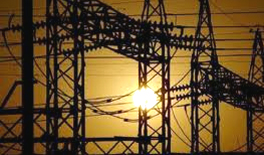Science, non-science and the dubious role of “experts” in environmental due diligence: a case study of Cheyyur Ultra Mega Power Plant, Tamil Nadu
 The Government of India has identified Cheyyur in Kanchipuram district, Tamil Nadu, as one of several sites for a 4000 MW ultra mega power plant (UMPP) using imported coal and super-critical technology. Super-critical technology claims to attain far higher thermal-electrical conversion efficiencies than sub-critical plants, thereby maximising the conversion of coal's embedded thermal energy into electricity. The coal would be brought in through a captive jetty-cum-port located
between the fishing villages of Panaiyur Periakuppam and Panaiyur Chinnakuppam. The port will occupy a 650 metre shorefront. A coal stocking yard capable of storing 310,000 tonnes of coal will be constructed on 83 acres of coastal land abutting the two fishing villages. A 6.5 km conveyor belt running over dunes, fields, orchards, densely wooded areas and waterbodies would carry the coal to the power plant. Various documents provide varying figures -- between 415 and 489 hectares -- for the land requirements of the power plant and its ash dyke.
The Government of India has identified Cheyyur in Kanchipuram district, Tamil Nadu, as one of several sites for a 4000 MW ultra mega power plant (UMPP) using imported coal and super-critical technology. Super-critical technology claims to attain far higher thermal-electrical conversion efficiencies than sub-critical plants, thereby maximising the conversion of coal's embedded thermal energy into electricity. The coal would be brought in through a captive jetty-cum-port located
between the fishing villages of Panaiyur Periakuppam and Panaiyur Chinnakuppam. The port will occupy a 650 metre shorefront. A coal stocking yard capable of storing 310,000 tonnes of coal will be constructed on 83 acres of coastal land abutting the two fishing villages. A 6.5 km conveyor belt running over dunes, fields, orchards, densely wooded areas and waterbodies would carry the coal to the power plant. Various documents provide varying figures -- between 415 and 489 hectares -- for the land requirements of the power plant and its ash dyke.
